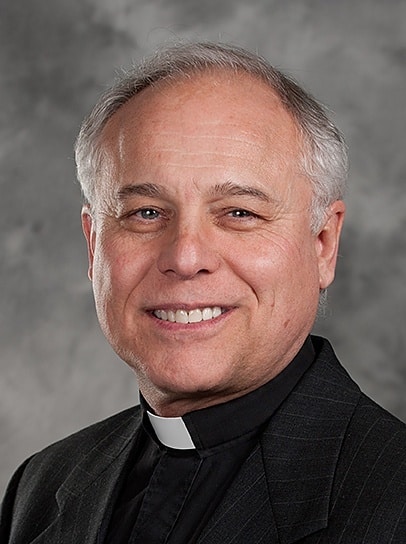December 15, 2014

Father James DiLuzio, CSP
Most dictionaries define hope as a wish or desire for some kind of fulfillment; a trust (or a feeling) that something good may happen. Interestingly, as compared to other sources, only the American Heritage Dictionary adds a fourth definition of hope:
4. Hope: The theological virtue defined as the desire and search for a future good, difficult but not impossible to attain with God’s help.
So it seems that while our secular world grounds its hope in earthly expectations, those who embrace spiritual values find hope in God. This hope includes trust that God is involved in human history. This is the blessed assurance Christians inherited from Judaism. The season of Advent invites us to cultivate deeper understandings of hope and to see the value of patient endurance for a greater good as God’s gift to us – if we are willing to accept it. Let’s explore a little more of what the faith dimensions of hope entail.
Building upon the Judaism of Jesus, Christian hope grounds itself in the Hebrew expectation for “The Day of the Lord” – the time when God will right all earthly wrongs and goodness and justice will prevail. This belief is a bedrock of the Jewish faith. This will happen – if not “at once,” than ultimately “at last!” (See Malachi 3:19, Joel 2: 1 ff, Zephaniah 1: 14 ff). In the interim, what is promised for the future may be achieved in part in the here and now. Thus, we articulate “hope” in the popular phrase “the now and the not yet,” for while Jesus insists his followers “pray for the coming of the kingdom,” he also urges us to do our best to achieve it. (Luke 11: 28) The harmony we desire for the culmination of the world is possible the more we make our daily decisions out of love of God and neighbor. Today, Christians and Jews are bound by this same directive as are people of Islam and other world religions who embrace this tenet.
Another dimension of Hope may be found in the Catechism of the Catholic Church:
“(The theological virtues of faith, hope and charity are) the foundation of Christian moral activity … They are infused by God into the souls of the faithful to make them capable of acting as God’s children and meriting eternal life. They are the pledge of the presence and action of the Holy Spirit in the faculties of the human being” (Catechism entry #1813).
Therefore, whenever we follow the movement of the Holy Spirit in our own lives, we experience “God’s goodness” and “the kingdom of God is at hand” (See Luke 10: 9 and 17: 20-21). Thus the vital connection between hope in heaven and hope on earth is confirmed. Indeed, the essential Christian prayer “Our Father” insists that God’s will be accomplished “on earth as it is in heaven.” Human cooperation required.
